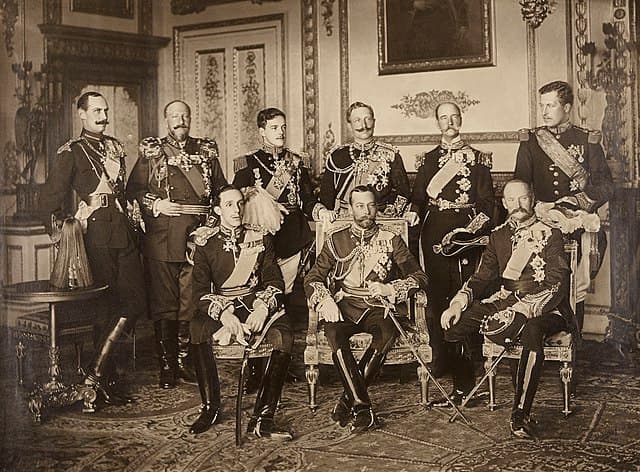Elizabeth II Showed Monarchy’s Surprising Resilience
There is much to be said for having a head of state who is politically neutral, culturally traditional but open to popular innovation, personally embodying the traditional strengths of a nation.

The funeral of Queen Elizabeth II and the praise pouring in from almost all quarters for her 70 years of service make a powerful case, even for small-r republican and small-d democratic Americans, for the institution of constitutional monarchy.
There is much to be said for having a head of state who is politically neutral, culturally traditional but open to popular innovation, personally embodying the traditional strengths of a nation.
Such a monarch does not govern in the sense of making policy. But in exercising her prerogatives, as described by the Victorian era journalist Walter Bagehot, to be consulted, to encourage and warn, she holds elected heads of government accountable under cover of confidentiality.
The late queen’s former prime ministers affirm the worth of her counsel, as have many leaders of the Commonwealth of Nations, which expanded from eight to 56 members on her watch.
She quietly extended the Anglosphere heritage of the rule of law and personal freedoms and, like her predecessors going back to Queen Victoria, has opposed racial prejudice and discrimination. Apartheid South Africa left the Commonwealth in 1961, and Nelson Mandela rejoined it in 1994.
In an era of rising or persistent nationalism, monarchy can provide a legitimacy that, as the New York Times’s Ross Douthat notes, even a superficially popular authoritarian lacks.
This is not what one would have expected a century ago, in the wake of World War I, when monarchy seemed discredited. Both Germany’s Kaiser Wilhelm II and Russia’s Tsar Nicholas II played major roles in the diplomatic maneuvering that led to war.
The crisis began with Serbian terrorists’ assassination of the heir to the 84-year-old emperor of Austria and King of Hungary, Franz Josef. The Serbs, historian Christopher Clark argues, feared the heir Franz Ferdinand would pursue different policies.
The war was disastrous for all three of these multiethnic monarchies. Austria-Hungary was broken up by the victorious Allies, and Franz Josef’s young successor, Karl I, was exiled in April 1919. He died and was quietly buried in Madeira in 1922. Ironically, his oldest son, Otto von Habsburg, lived until 2011 and played a positive political role in the European Parliament and in support of Eastern Europe’s anti-Communist revolutions in 1989.
Kaiser Wilhelm abdicated two days before the November 1918 armistice and skipped over the border to the neutral Netherlands. His hopes of being summoned back to the throne by the Nazis came to nothing and he died and was buried there in June 1941.
The fate of Nicholas II was grimmer. Amid Russian revolution, he abdicated in March 1917 and was exiled to Siberia. In July 1918, Bolsheviks gunmen mowed down him and his family and stuffed their bodies down a mineshaft. Their remains were found years later and were reburied in St. Petersburg in July 1998.
None of these monarchs had a funeral anything like Queen Elizabeth’s, and their fate delegitimized the idea that monarchs should set policy — at least in the West. Elizabeth’s grandfather George V, who followed his ministers’ advice, survived, as have the constitutional monarchies of Scandinavia and the Low Countries.
Yet monarchical power has survived elsewhere. Spain’s Juan Carlos I squelched a military coup in 1981. Morocco’s Mohammad V saved his country’s Jews in the 1940s and his grandson Mohammad VI made peace with Israel in 2020. Jordan has prospered under King Hussein and King Abdullah II.
Some downright bizarre monarchies have survived. Saudi Arabia was ruled for half a century (1902-1953) by the polygamous desert warrior Ibn Saud and then for even longer by six of his sons. It has been governed since 2017 by 30-something Crown Prince Mohammed bin Salman Al Saud, like his grandfather a reformer with rough tactics.
More sinister are the “people’s republics” tyrannized by family dynasties: North Korea by the three generations of Kims in the 74 years since 1948, Cuba by the two Castro brothers in the 62 years from 1959 to 2021.
More benignly, recent history has seen the election of presidents’ sons and daughters in big democracies such as India, Indonesia, South Korea and the Philippines. And don’t forget the election and reelection of political scions Justin Trudeau in Canada and George W. Bush in the United States.
None of these other leaders matched Elizabeth II’s hold on her nation and the world. But apparently, people still have a yearning for one individual to be a national symbol. So, it’s fortunate, not just for Britain and the Commonwealth, but for the world, that Elizabeth II set an example of how it should be done.
Creators.com

